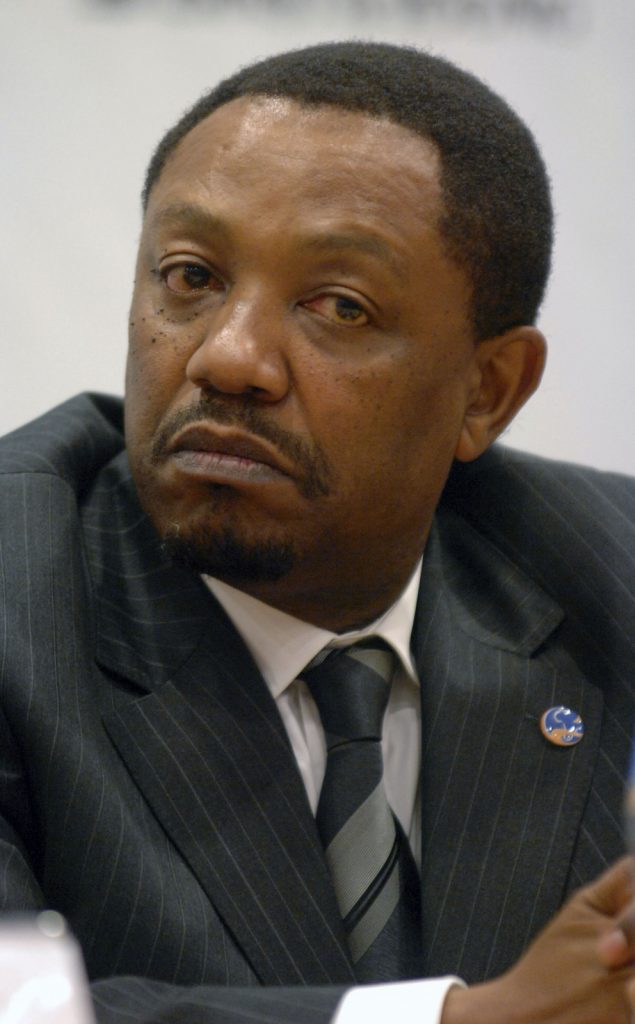Reuel Khoza. (James Oatway/ Gallo Images / Sunday Times)
Whenever Italy gets serious about running the affairs of state because of the pressures that the European Union has brought to bear — read Germany — they tend to bring in a technocratic leader. Since 1993, the country with its many coalition-led governments with madman leaders such as Silvio Berlusconi at centre stage, has had four technocrat leaders. These weren’t dogged by party politics as they were recruited from outside parliament and could run matters of state without too much concern about the political ramifications.
I think we can all agree that the management of South Africa’s electricity crisis since the first smoke signals some 25 years ago has been bad, to put it mildly. From indecision over privatisation in the early years, to the opportunism and the subsequent corruption binge that followed the rushed building of two coal-fired power stations in Medupi and Kusile, it’s been the government’s biggest failure in three decades.
Whichever way we get out of this hole, what is clear is that a politician is not the right person to drag us out. No matter how well intentioned, whether its Gwede Mantashe or Pravin Gordhan, the general apathy and lack of confidence in the ANC’s ability to oversee Eskom and the expansion of our electricity grid is just too large to overcome for citizens and the investment world as a whole.
 Former Eskom chief executive Thulani Gcabashe. (Chris Warde-Jones/Bloomberg via Getty Images)
Former Eskom chief executive Thulani Gcabashe. (Chris Warde-Jones/Bloomberg via Getty Images)So, maybe President Cyril Ramaphosa is right, and I should give him credit — we do need our own Mario Draghi, the last technocratic leader to save Italy. I’ve been considering the creation of a Minister of Electricity, or “project manager” as Mantashe has dismissed it, and the names that could be tempted to take the role, now that it’s here.
This is all speculative, I know, but there are names that wouldn’t ruffle any feathers in the ANC or among opposition parties, such as the Democratic Alliance. The response of the Economic Freedom Fighters is anyone’s guess.
Public Investment Corporation chair, and director of a few of our blue chip companies, Reuel Khoza, is a name that intrigued me. As chair of Eskom between 1997 and 2002, he warned the administration of Thabo Mbeki about the electricity deficit.
Like all of us, matters relating to his former employer are still of interest. Last October, in a webinar organised by the Centre for Development and Enterprise on leadership in South Africa, he called for skilled engineers and artisans to be recalled to address the Eskom crisis. He said the state shouldn’t interfere with the day-to-day running of Eskom saying, as its sole shareholder, the state should behave like one and ensure there’s a solid board and hold it accountable at annual general meetings.
He certainly would bring a level of confidence to most stakeholders, in much the same way as Thulani Gcabashe, chief executive officer of Eskom between 2000 and 2007, would. I’m sure he is as well versed as anyone on the story of Eskom and why it is where it is today; he warned of this potential outcome. Gcabashe stood down as Standard Bank chairman and director last May, his most high-profile directorship.
 Former deputy Reserve Bank governor Daniel Mminele. (Photo courtesy SA government)
Former deputy Reserve Bank governor Daniel Mminele. (Photo courtesy SA government)
Then there is the case of Daniel Mminele, former deputy Reserve Bank governor and short-lived CEO of Absa. I felt his departure from public service to the private sector was a loss at the time and wasn’t too surprised that Absa’s corporate skullduggery would be too much to navigate. (After Absa, I’m certain politics can’t scare him.) He most recently chose not to renew his contract as the head of the Presidential Climate Finance Task Team, charged with finalising a $8.5 billion deal for the country.
Once touted as a possible finance minister, given the strength of leadership at the Reserve Bank, maybe, just maybe, the project of overseeing our most urgent crisis might appeal.
These are just three candidates I’ve singled out. There are others one could find who could stand in the “Draghi” position in government, who would need support and protection from the president. To be fair, given just how loath he has been to reshuffle his cabinet, he is, if anything, loyal to the men and women in his cabinet, unlike his predecessor.
While we wait for the president to reshuffle his cabinet in the weeks to come, and the economy continues to struggle under the weight of load-shedding which has Absa warning of a technical recession — two consecutive quarters of negative growth — we can only speculate on what might happen. This is just my two cents.